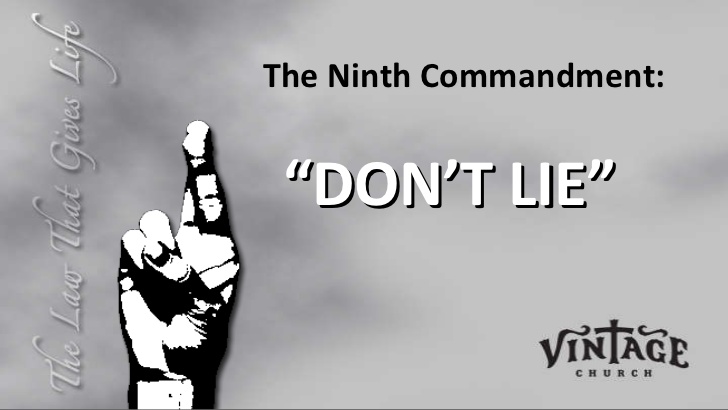As we enter the ninth month of the year, our focus shifts to the Ninth Commandment—“You Shall Not Lie.” Interestingly, the Ninth Commandment is somewhat an extension of the Sixth Commandment—“You shall not kill”. We have all likely experienced violence with words, so we shouldn’t be too surprised to see the effects of verbal violence: slander, gossip, and dishonesty.
James points out that an unbridled tongue is “an unruly evil and full of deadly poison” (3:8). Ultimately, James concludes that the way we talk to and about one another provides a window into our spirits—a window that reveals whether or not the Sprit of God dwells there, and who exactly is lord of our lives: God or ourselves.
Proverbs tells us that “death and life are in the power of the tongue” (18:21) and “a wholesome tongue is a tree of life (15:4). There are three common types of lies: speaking what is not true, deliberately doing so, and doing so with an intent to deceive.
Words can spur others to follow God, and they can also cause others to abandon God or disobey him. The use of speech for foul play can be observed in numerous instances in Scripture, each case reminding us that many of the sins committed against previous commands start out with this command. Do we use words to muddy the waters of truth? Or do we use them to clear things up?
In 2013, Sam and Annaka Harris wrote a book entitled Lying that offers some useful perspective.
Click here to continue.

